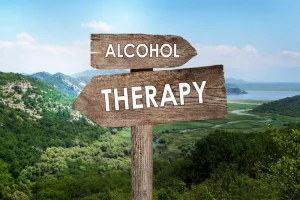
Provide careful support for the individual’s disclosure decisions and processes, not only with family and friends, but also in the community (e.g., healthcare providers, employers), and support the individual in the aftermath of these processes. Counselors have an opportunity to help clients reframe how they see themselves and how they feel they are seen by others. Clients should also follow up with a medical provider to determine underlying causes of weight change.

Importance of Substance-Free Activities in Recovery
Sober living programs on campus often offer additional recovery services, such as academic support, 24/7 recurrence assistance, and sober entertainment options. Several programs exist to support people who are currently homeless or https://ecosoberhouse.com/ at risk of becoming homeless, such as homelessness prevention programs, emergency shelters, and rapid re-housing programs. Domestic violence shelters are designed to support clients who are experiencing intimate partner violence.

Motivational Approaches
- Be familiar with the required protocols of providers, facilities, and services.
- To be eligible, housing agencies review an individual’s or family’s annual gross income; whether they qualify as elderly, a person with a disability, or as a family; and whether they are a U.S. citizen or have eligible immigration status.
- Your substance abuse counselor should be patient because recovery takes time.
- Whatever the reason, clients who make the decision to discontinue medication will need ongoing support from their care team to ensure that they have the resources they need to support their recovery process.
Because addiction can affect so many aspects of a person’s life, treatment should address the needs of the whole person to be successful. Counselors may select from a menu of services that meet the substance abuse counseling specific medical, mental, social, occupational, family, and legal needs of their patients to help in their recovery. Stopping drug use is just one part of a long and complex recovery process.
Dialectical Behavior Therapy
- Various approaches for treating problematic substance use and preventing recurrence feature mindfulness practices, including mindfulness-based relapse prevention (MBRP), mindfulness-based stress reduction (MBSR), acceptance and commitment therapy (ACT), and dialectical behavior therapy (DBT).
- For example, maybe the client has always wanted to join a pool and learn to swim.
- You may need to pass an exam through the National Certification Commission for Addiction Professionals (NCCAP).
- An appropriate drug policy relies on the assessment of drug-related public expenditure based on a classification system where costs are properly identified.
- Other popular recovery meetings include SMART Recovery and Celebrate Recovery.
We publish material that is researched, cited, edited and reviewed by licensed medical professionals. The information we provide is not intended to be a substitute for professional medical advice, diagnosis or treatment. It should not be used in place of the advice of your physician or other qualified healthcare providers.
Harm Reduction
- Advocate for policy change in the community (e.g., against policies that criminalize substance use or deny services to these individuals) through appropriate public channels (e.g., face-to-face conversation, social media, op-eds).
- They’re experts on the ins and outs of addiction and develop tailored treatment plans based on your specific addiction, needs and goals.
- Candidates must also prove that they have completed supervised clinical hours.
The median yearly earning for those employed in residential substance abuse facilities was $42,900, while the median for those in government settings was $60,450. One study found that people employed as supervisors were more likely to be certified or licensed and hold a masters-level degree. Those with a higher educational status had greater familiarity and acceptance of evidence-based therapies. Counselors working in residential settings tended to have fewer years of experience. Those with master’s-level degrees in fields such as psychology, social work, counseling, and related fields can provide individual counseling or may work in private practice. Substance abuse counselors may have a master’s degree or doctorate degree.

Sign Up for SAMHSA Email Updates
Benefits of MI in Recovery From Substance Use–Related Issues
